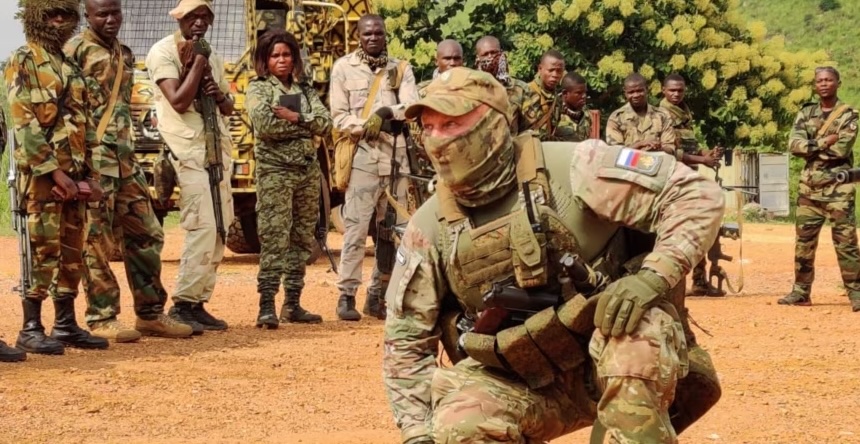Already a subscriber? Make sure to log into your account before viewing this content. You can access your account by hitting the “login” button on the top right corner. Still unable to see the content after signing in? Make sure your card on file is up-to-date.
The Russian government is reportedly putting pressure on the Central African Republic to replace the Wagner mercenary group with its state-controlled alternative and switch to a cash-based payment system.
Some shit you should know before you read: If you’re unaware, Wagner has operated across numerous African countries for years, embedding itself in conflicts from Libya and Sudan to the Central African Republic and Mali, where it has provided combat support, bodyguard services for government officials, and training in exchange for lucrative resource deals. Despite the death of its leader, Yevgeny Prigozhin, in 2023, Wagner has not disappeared. Many of its fighters continue operating under the Wagner name in select regions, while many of its overseas missions have been rebranded under Russia’s state-run “Africa Corps,” a force directly controlled by the Defense Ministry. Africa Corps has been slowly replacing Wagner’s footprint, most recently taking over operations in Mali in June.

What’s going on now: First reported by AP and picked up by multiple international outlets, Russia is pressing the Central African Republic (CAR) not only to replace Wagner with its state-controlled Africa Corps but also to scrap the long-standing practice of payment in mineral resources in favor of cash. According to CAR officials cited by AP, these demands include covering the operating costs of Africa Corps personnel and sending millions of dollars directly to Russia (money CAR officials say they cannot afford).
The shift is notable because it departs from Wagner’s established practice of accepting gold, diamonds, and other resources as payment. Some believe this is being done because of the financial pressure Russia is feeling as its war in Ukraine drags on. Russia’s economy has been weakened not only by existing Western sanctions but also by persistent Ukrainian strikes targeting the country’s oil infrastructure, which have disrupted refining capacity and export flows (a key source of government revenue). These attacks have further strained state finances, especially when combined with the rising costs of sustaining the war.
In addition to all of this, some financial analysts have previously warned that Russia’s sovereign wealth fund was on track to be depleted by 2026 if low oil prices and heavy government spending persist. Built from years of oil and gas earnings, the National Wealth Fund has seen its reserves fall to their lowest level in years, with liquid assets, foreign currency holdings, and gold stocks all shrinking. Large withdrawals to cover budget deficits, finance infrastructure projects, and support state enterprises have accelerated the decline.
The move also comes amid indications that the United States is preparing additional sanctions and secondary tariffs targeting Russia’s trading partners. This plan, if implemented, would be aimed at cutting off Russia’s access to funds for its war effort.







